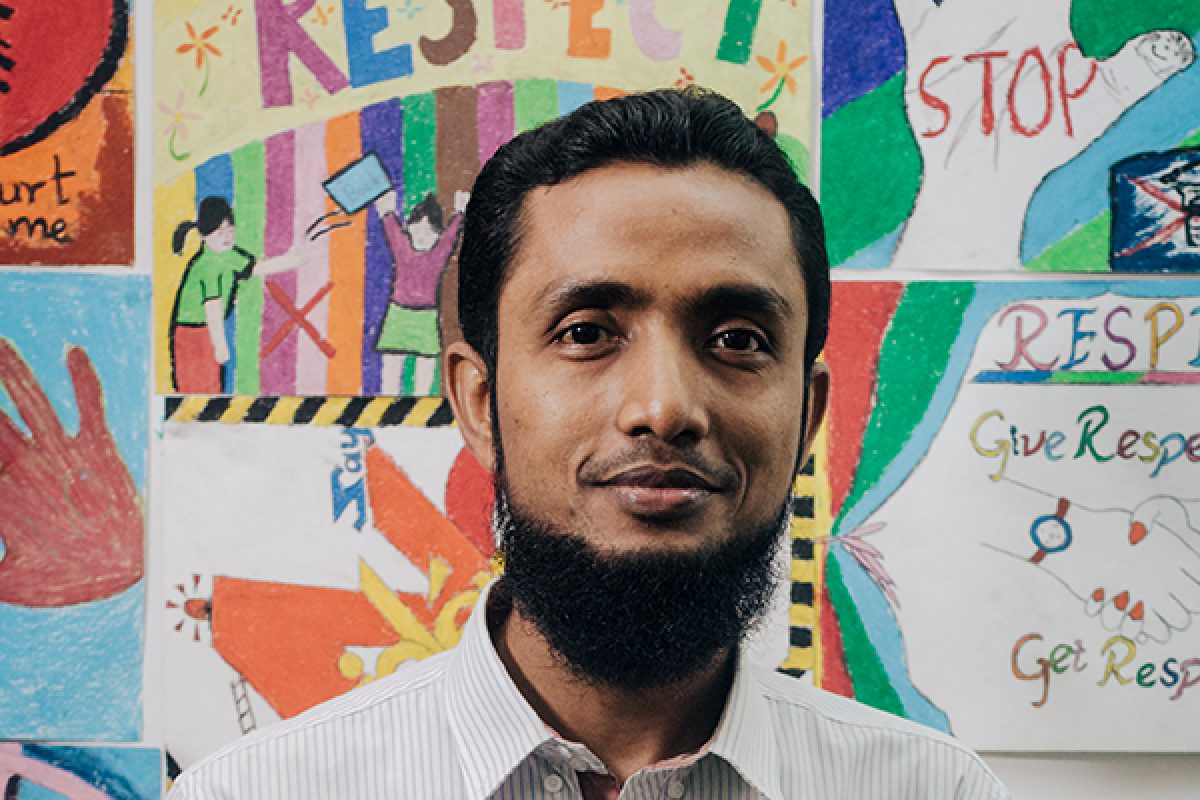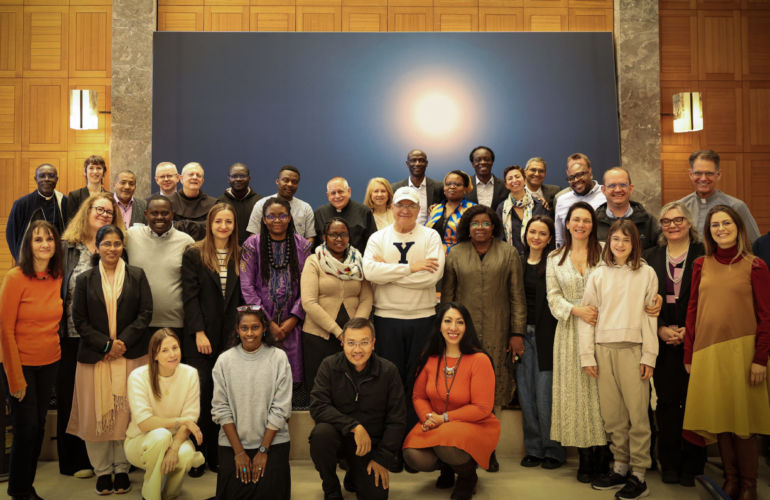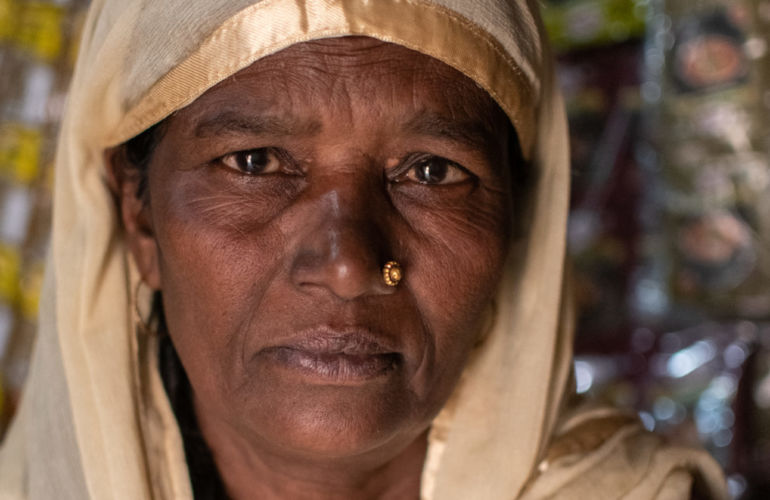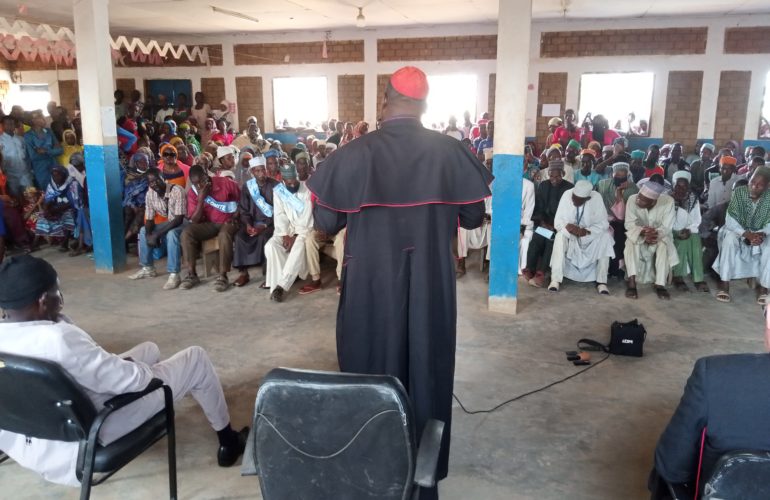Fighting Gender-Based Violence among Refugees in Malaysia

Hakim* is one of just a handful of men participating as volunteers in the International Catholic Migration Commission’s (ICMC) Refugee Women’s Protection Corps in Kuala Lumpur, Malaysia. A Rohingya refugee from Myanmar, Hakim has been active with ICMC since 2015. Through his role, he not only fights gender-based violence but has also become a model of male allies’ role in supporting women’s empowerment.
“Gender-based violence is a topic that everyone should know about, regardless of race or culture,” he says.
ICMC’s Corps offers peer counseling and assistance to refugees who have suffered sexual or gender-based violence and raises awareness of the issue within refugee communities. Being members of those same communities, the volunteers – most of whom are women, as are too the survivors of gender-based violence – can better approach vulnerable people and survivors and identify their needs.
As a member of the Corps, Hakim conducts outreach and awareness-raising house visits to community members and trainings of trainers for community influencers. He also assists survivors through interpretation during counseling sessions or by accompanying them to a shelter or to see a doctor. Moreover, he helps operate ICMC’s sexual and gender-based violence hotline that survivors can call to receive assistance in their language.
Hakim is one of an estimated 110,000 Rohingya refugees to have fled to Malaysia. Hundreds of thousands more live in Bangladesh, Thailand, India and the Arabian Peninsula. Although they have never known any other land, the Rohingya ethnic group are not recognized as citizens by the government of Myanmar. Violent attacks against them in recent years have led the United Nations to speak of ethnic cleansing.
The role of men in fighting gender-based violence
At times, being a man has been a challenge to Hakim’s work in the Corps. During trainings, some women hesitated to receive a non-familiar man in their home, even though two female Corps members always accompany Hakim during home visits. Before his visits, the team always phones to request consent for a male Corps member to come to their homes.
However, the advantages of a man’s participation in the fight against gender-based violence far outweigh the challenges.
In Myanmar, Hakim worked with another NGO in the health sector which assisted a large portion of the local community now in Kuala Lumpur. Today, this experience allows him to approach and influence religious and community leaders who know, respect and identify with him. “I look like them, I even wear a beard!” he says.
Hakim became aware of the effects of gender-based violence on his community by listening to survivors’ stories. “I was sad. I thought this type of thing happened only in movies,” he says about the harrowing experiences survivors have shared with him. This new awareness pushed him to act.
A common misconception is that gender equality will lead to the overpowering of men by women. Being part of the community, Hakim knows which arguments can convince people that gender equality is best for families.
Engaging men and boys in the fight against sexual and gender-based violence is one of ICMC’s priorities in Malaysia and the organization is exploring new activities targeting men.
This is not only essential to protect women and girls, but can also lead to better prevention and protection for boys and men. Male survivors are even less likely than their female counterparts to report abuses committed against them because of the social stigma they might face.
Becoming an example for other men
Before joining the Corps, Hakim had never thought about the roles of men and women in his culture. “[In the town where I lived], I had never seen a woman drive a car or become a policewoman. This did not exist,” he says.
His work with ICMC has pushed him to question traditional roles, which has led to a change in his perception of his own position within his family. He began taking responsibility for domestic chores, starting with small things like learning how to cook, carry their baby girl and mix her baby formula.
“Now, I can do almost everything women can do. Recently, my wife was traveling for three weeks and I was at home with the children. I took care of everything around the house,” the father of three says proudly.
Since making these changes, he says his wife respects him more and has taken on tasks traditionally reserved to men. For Hakim, it is essential that his wife can do everything on her own so as to be able to take charge in case of an emergency. He and his wife even take equal leave from work to care for the children during school breaks.
He admits to having felt a little shy at first when community members would see him doing things they consider to be women’s jobs. However, he stood firm, and his words and actions have influenced the men around him.
* Name changed to protect identity.
Learn more about ICMC’s work to prevent and address gender-based violence in Malaysia


